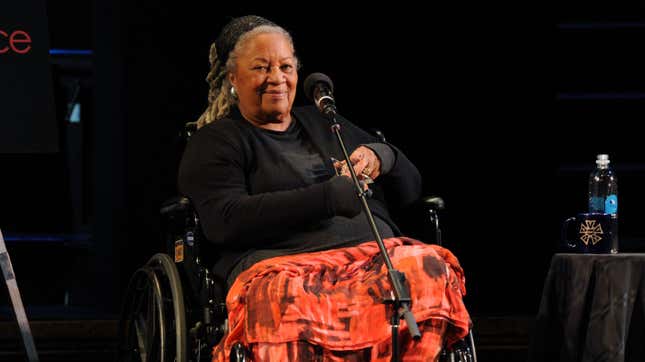Author Toni Morrison, a Supreme Voice, Has Died at 88
Latest

Toni Morrison wrote and spoke with rare clarity, poetry, and context about the interior lives of black people in America. She became a leading voice for conversations around race, deft at spinning narratives of black girls and women into fictions about strength and neglect. Morrison, an author and essayist who taught a generation of writers the beauty and transcendence of language, has died at age 88.
Vulture reported her death on Tuesday morning. Morrison’s publisher, Alfred A. Knopf, confirmed that Morrison died on Monday night at Montefiore Medical Center in New York. The Washington Post and Associated Press also confirmed the news. No cause of death was stated.
-

-

-

-

-

-

-

-

-

-

-

-

-

-

-

-

-

-

-

-

-

-

-

-

-

-

-

-

-

-

-

-

-

-

-

-

-

-

-

-








































